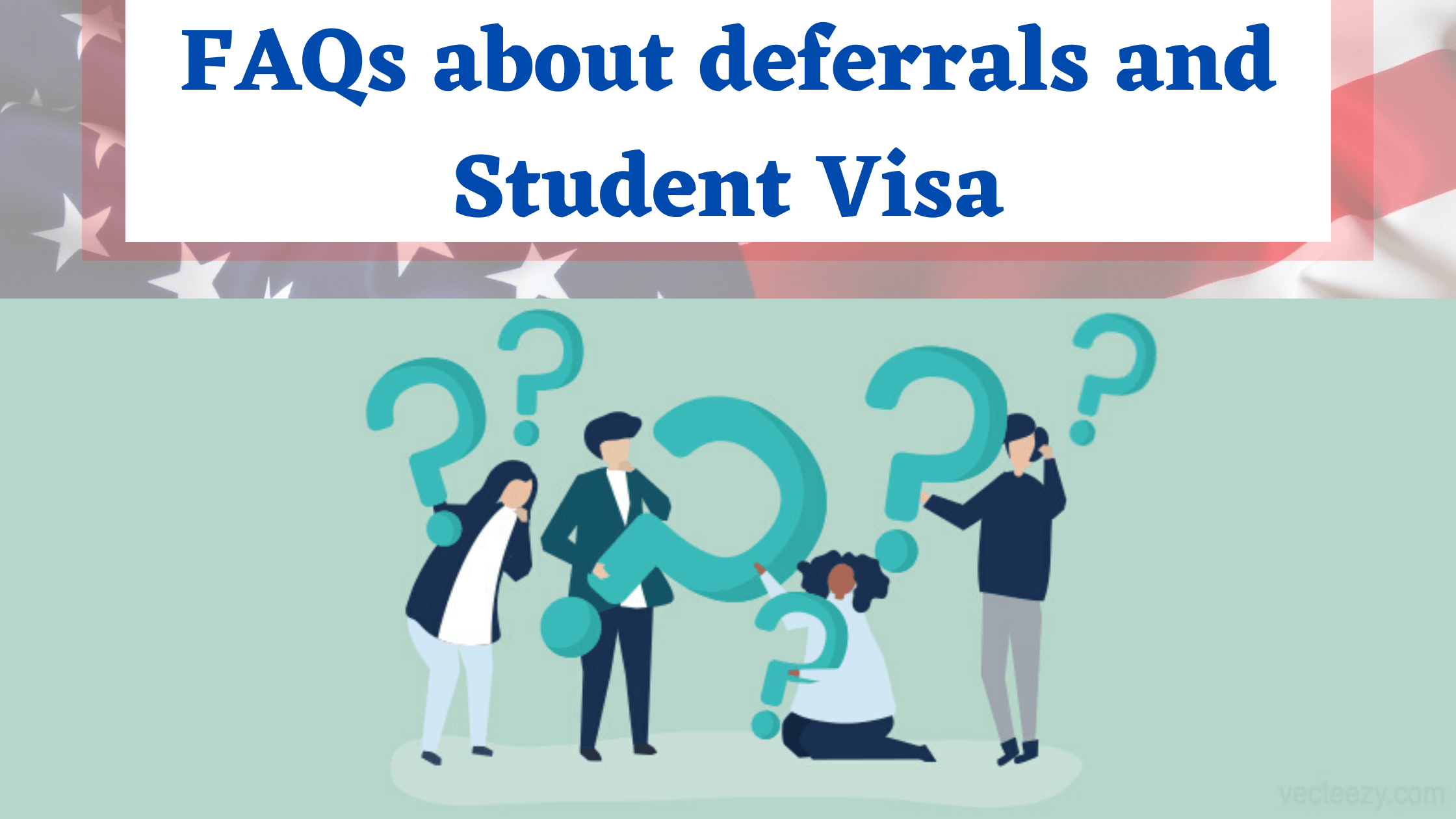
With the current pandemic situation and uncertainties about deferrals and Visa regulations, most of you who are in the process of joining US universities for MS or who are planning to join next year, have a lot of queries and doubts. To guide you better and help you make a decision, here are the answers to some of the most Frequently Asked Questions:
Q1) I am currently taking GRE classes, and I plan to apply next year. Is it safe to go next year?
Answer: Yes. You can safely apply for Fall 2021 since the situation will normalize by then. Things will begin to get under control right after the November presidential elections.
Q2) Should I defer my Fall 20 admission to Spring 21 or Fall 21?
Answer: At the moment, you can defer your admission to Spring 21 since it is likely that the situation will be under control by then and in-person classes will resume. Otherwise, you will have to extend the deferral to Fall 21.
Q3) I have received admits from eight universities. Will all of them accept deferral for Fall 21?
Answer: No. All the universities may not accept deferral for Fall 21. Some of them are asking students to reapply next year for the fall session. In that case, your application will be evaluated along with the new applicants. Fortunately, the number of students applying next year will be comparatively less. Therefore, your chances of acceptance will not be hampered.
Q4) When should I book my visa dates if I want to go in Spring 21?
Answers: Visa booking dates for October are now available. Visit the official website of US Consulate for booking your date.
Q5) I am planning to defer to Spring 21, and hence I have booked my visa date for October 20. If I again extend my deferral to Fall 21, do I have to book the visa date and pay the visa fee again?
Answer: In case you book the date for October but instead of joining in Spring 21, you decide to defer to Fall 21, you have to cancel the booked date and reschedule another date, anytime within a year. You need not pay the Visa fee again.
Q6) Will the current situation in the US affect my internship?
Answer: According to the SEVP Advisory, all Indian students pursuing/looking to pursue practical training opportunities, including Curricular Practical Training (CPT), pre-completion Optional Practical Training (OPT), post-completion OPT, and/or the STEM Extension OPT are advised to remain in contact with their Designated School Official (DSO) regarding their situation.
Q7) Will the pandemic affect research and other funding opportunities offered by universities?
Answer: Since majority students are not joining universities for Fall 20, it is affecting their financial condition. On this backdrop, it is most likely that the funding opportunities will be difficult for at least the first two semesters.
Q8) Will the current situation and new rules affect the STEM category?
Answer: As of now, there is no official declaration about it, so it should not be a matter of concern.
Q9) Many universities are exempting GRE, SAT, and English Language Test scores for admissions for spring 21 and in some cases, even for fall 21. Should we not give these exams?
Answer: Very few students are applying right now hence the universities are offering exemptions. We still recommend you to appear for these exams because when the number of applicants increases next year, GRE and SAT scores will give an upper hand to your application.
For any other query about GRE, US admissions and jobs, visit our FAQ Section.
Click HERE to enroll for our online GRE batches.

